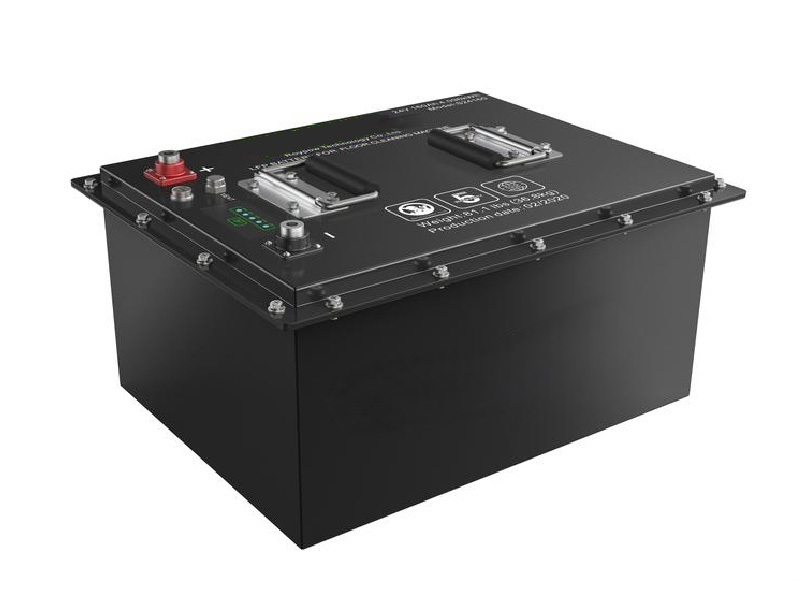Why RV Lithium Batteries are the Ultimate Choice for Camping Trips
2025-07-17

Why RV Lithium Batteries are the Ultimate Choice for Camping Trips
The modern camping experience has evolved dramatically over the years. Gone are the days of roughing it entirely in the wild, as many campers now seek the comforts of home while enjoying nature. At the heart of this transformation lies a critical component: energy storage. In this comprehensive guide, we will explore why RV lithium batteries are the ultimate power solution for camping trips, examining their numerous benefits, applications, and features that make them stand out from traditional lead-acid batteries.
Table of Contents
- Understanding Lithium Batteries
- Advantages of Lithium Batteries for RVs
- Comparing Lithium and Lead-Acid Batteries: What You Need to Know
- How Lithium Batteries Enhance Camping Experiences
- Choosing the Right Lithium Battery for Your RV
- Installation and Maintenance Tips for Lithium Batteries
- Safety Considerations for Lithium Batteries
- The Future of Lithium Batteries in RV Camping
- Conclusion
- FAQs about RV Lithium Batteries
Understanding Lithium Batteries
Lithium batteries have gained popularity due to their superior performance and efficiency compared to traditional lead-acid batteries. They utilize lithium-ion technology, which allows for greater energy density, longer life cycles, and faster charging times. This section delves into the science behind lithium batteries, exploring their composition and how they function.
At their core, lithium batteries consist of cells that contain a positive electrode (cathode), a negative electrode (anode), and an electrolyte that facilitates ion movement. When the battery discharges, lithium ions flow from the anode to the cathode, generating electrical energy. This efficient process results in a higher energy output with a smaller footprint, making lithium batteries ideal for applications such as RVs, where space and weight are at a premium.
Advantages of Lithium Batteries for RVs
The advantages of lithium batteries over traditional power sources are numerous, particularly for RV enthusiasts. Here are some key benefits that make them an ideal choice for camping trips:
1. Lightweight and Compact Design
Lithium batteries are significantly lighter than lead-acid batteries, which can be a game changer for RV weight management. This allows for more cargo capacity and improved fuel efficiency, enhancing the overall travel experience.
2. Longer Lifespan
One of the most compelling reasons to choose lithium batteries is their longevity. A lithium battery can last up to 10 years or more, while lead-acid batteries typically require replacement every 3-5 years. This durability translates to lower costs over time.
3. Faster Charging Times
Lithium batteries charge much faster than their lead-acid counterparts. They can reach full charge in 1-2 hours, allowing campers to quickly replenish their power supply and get back to enjoying their outdoor adventures.
4. Deeper Discharge Capability
Unlike lead-acid batteries, which should not be discharged below 50% to avoid damage, lithium batteries can be safely discharged down to 20% or even lower. This feature provides campers with more usable power and flexibility during extended trips.
5. Increased Efficiency
Lithium batteries boast higher efficiency ratings, with around 95% of the stored energy usable compared to only about 50-70% for lead-acid batteries. This efficiency means campers can rely on lithium batteries for more power-intensive applications, including air conditioning and electronics.
Comparing Lithium and Lead-Acid Batteries: What You Need to Know
When choosing a battery for your RV, understanding the differences between lithium and lead-acid batteries is essential. This section presents a detailed comparison to help you make an informed decision.
1. Cost Analysis
While the initial investment for lithium batteries is higher, their long-term savings are considerable. When factoring in lifespan, maintenance, and performance, lithium batteries often prove to be more cost-effective in the long run.
2. Performance and Reliability
Lithium batteries excel in performance metrics, showing consistent power output across a range of temperatures and conditions. They are less prone to sulfation, a common issue that affects lead-acid batteries, resulting in decreased reliability.
3. Environmental Impact
Lithium batteries generally have a lower environmental impact compared to lead-acid batteries. They are recyclable, and advances in technology continue to improve their sustainability, aligning with the growing trend of eco-conscious camping.
How Lithium Batteries Enhance Camping Experiences
Powering your RV with lithium batteries can significantly enhance your camping adventures. Here’s how they contribute to a more enjoyable experience:
1. Off-Grid Adventures
Lithium batteries empower campers to venture off the beaten path without sacrificing modern conveniences. With robust energy storage, you can run appliances, lights, and devices without the constant need for a generator or external power source.
2. Enhanced Comfort
Imagine enjoying a warm cup of coffee while watching the sunrise or powering your refrigerator to keep food fresh during your trip. Lithium batteries enable you to maintain a comfortable lifestyle in your RV, making camping trips more enjoyable.
3. Support for Smart Technology
As RVs become increasingly equipped with smart technology, the demand for reliable power sources grows. Lithium batteries can support these advancements, allowing you to control your RV's systems from your smartphone or tablet.
Choosing the Right Lithium Battery for Your RV
Selecting the ideal lithium battery for your RV involves several considerations. Here are some vital aspects to guide your choice:
1. Capacity and Power Needs
Assess your power requirements by calculating the total wattage of the appliances and devices you plan to use. This will help determine the battery capacity needed to support your activities during camping trips.
2. Battery Management System (BMS)
A reliable lithium battery should include a Battery Management System (BMS) to monitor charge levels, temperature, and discharging rates. This feature ensures safety and longevity, preventing damage to the battery.
3. Brand and Warranty
Choose reputable brands with positive customer reviews and a solid warranty. A good warranty can provide peace of mind and protect your investment in case of any defects or issues.
Installation and Maintenance Tips for Lithium Batteries
Proper installation and maintenance are crucial for getting the most out of your lithium batteries. Here are some essential tips:
1. Professional Installation
If you are unfamiliar with electrical systems, it’s advisable to seek professional installation. This ensures that everything is set up correctly and safely.
2. Regular Monitoring
Keep an eye on your battery’s performance and health through regular monitoring. Check the charge levels and overall condition to ensure optimal performance.
3. Protect from Extreme Temperatures
Although lithium batteries are more temperature tolerant than lead-acid batteries, extreme temperatures can still affect performance. Store and use your batteries in conditions that are as moderate as possible.
Safety Considerations for Lithium Batteries
While lithium batteries are generally safe, understanding safety protocols is vital. Here are some important safety considerations:
1. Avoid Overcharging
Overcharging can lead to battery damage or failure. Always use a compatible charger and follow the manufacturer’s recommendations regarding charging practices.
2. Ventilation
Ensure proper ventilation when charging lithium batteries, especially in enclosed spaces. This can prevent heat buildup and potential hazards.
3. Storage Practices
When storing your lithium batteries, keep them in a cool, dry place. Disconnect them from any devices, and store at a partial charge to maintain battery health.
The Future of Lithium Batteries in RV Camping
The future of RV camping is closely tied to advancements in lithium battery technology. As the demand for sustainable energy solutions grows, the evolution of lithium batteries will likely continue to enhance the camping experience. Innovations such as improved energy density, faster charging capabilities, and increased recycling efforts will shape the landscape of RV camping.
Additionally, as more RV manufacturers begin to incorporate lithium battery systems as standard equipment, the shift towards electric and hybrid RVs will likely become more mainstream, paving the way for a more eco-friendly approach to camping.
Conclusion
In conclusion, RV lithium batteries are revolutionizing the camping experience by providing a reliable, efficient, and sustainable power source. Their lightweight design, longer lifespan, and superior performance make them the ultimate choice for camping trips, allowing adventurers to enjoy the comforts of home while exploring the great outdoors. By understanding the advantages and making informed choices, campers can harness the full potential of lithium batteries, ensuring memorable and enjoyable outdoor experiences for years to come.
FAQs about RV Lithium Batteries
1. How long do lithium batteries last in RVs?
Lithium batteries can last up to 10 years or more with proper care and maintenance, significantly longer than traditional lead-acid batteries.
2. Can I use my RV appliances with lithium batteries?
Yes, lithium batteries can power most RV appliances, including refrigerators, lights, and electronic devices, making them an excellent choice for camping trips.
3. Do lithium batteries require special chargers?
Yes, it is essential to use a charger specifically designed for lithium batteries to ensure safe and efficient charging.
4. Are lithium batteries safe for RV use?
When installed and used correctly, lithium batteries are safe for RV use. Following safety guidelines and manufacturer recommendations is crucial.
5. How should I maintain my lithium battery?
Regularly monitor the charge levels, avoid extreme temperatures, and ensure proper installation to maintain the health and longevity of your lithium batteries.
Key words:
Related News


